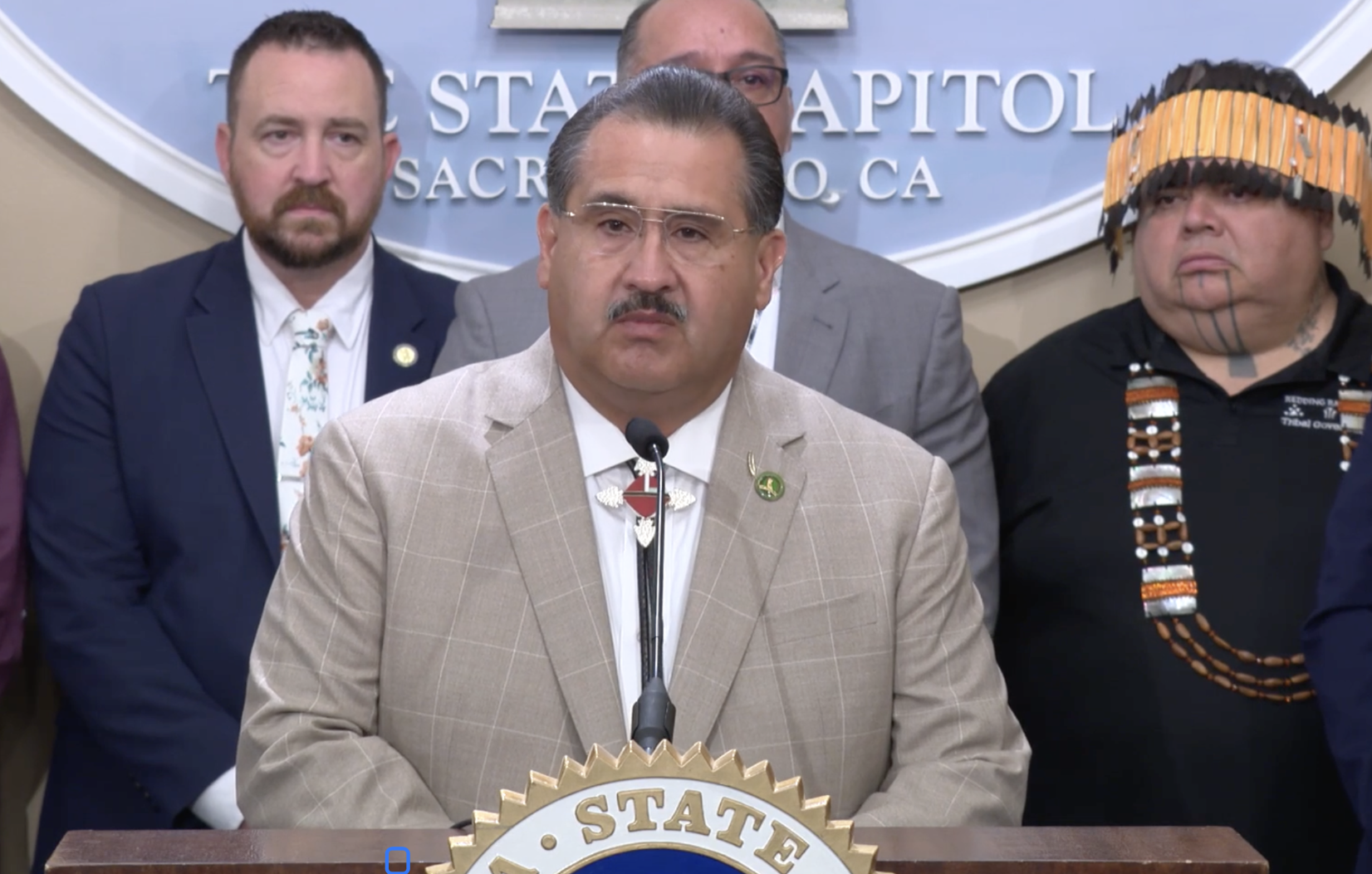
- Details
- By Native News Online Staff
Top officials from the University of California will be called to account Tuesday morning for their ongoing failure to return thousands of Native American human remains and hundreds of thousands of sacred cultural artifacts, as required by both federal and state law.
The hearing — scheduled for 9 a.m. in Room 1100 of the Capitol Annex Building at 1021 “O” Street — is a joint session of the Joint Legislative Audit Committee and the Assembly Select Committee on Native American Affairs.
Despite three critical audits over the past five years — in 2019, 2021, and most recently in April 2025 — UC has made limited progress in complying with the Native American Graves Protection and Repatriation Act (NAGPRA), enacted more than 30 years ago, and a similar California law passed 24 years ago.
Leading the hearing will be Assemblymember John Harabedian, Chair of the Joint Legislative Audit Committee, and Assemblymember James C. Ramos, Chair of the Select Committee on Native American Affairs. Ramos is the first and only California Native American serving in the California legislature. Ramos is the former tribal chairman of San Manuel Band of Mission Indians.
Testifying on behalf of the University of California will be Katherine Newman, Provost at the Office of the President; Rich Lyons, Chancellor of UC Berkeley; and repatriation coordinators from two UC campuses.
Tribal leaders scheduled to testify include Leo Sisco, Chair of the Tachi Yokut Tribe; Mary Ann Carbone, Mayor of Sand City and representative of the Venturina Chumash; John Potter Jr., Chair of Redding Rancheria; Valentin Lopez, Chair of the Amah Mutsun Tribal Band; and Lester “Shine” Nieto, Chair of the Tule River Tribe.
Some key excerpts from the latest state audit released in April 2025:
- “…it has been more than 30 years since the establishment of [the federal Native American Graves Protection and Repatriation Act (NAGPRA)], and the university’s campuses still hold the remains of thousands of individuals, as well as hundreds of thousands of cultural items…”
- “This report concludes that the university lacks the accountability and urgency needed to promptly return Native American remains and cultural items.”
- “The Office of the President has not effectively overseen the university’s compliance with NAGPRA, despite years of increased external attention” nor has it “ensured that campuses proactively search for undiscovered remains and items.”
- “The university does not know the full extent of its NAGPRA collections” and it “does not know how much work remains to achieve full repatriation and has not properly cared for all items it possesses”—including “one campus [that] has several outstanding loans of potential cultural items and…another campus [where] some potential cultural items were stolen in 2022.”
- “The university is not spending significant portions of [its] NAGPRA funding, including funding intended to support tribes with their repatriation expenses…We found that three of the four [investigated] campuses—Berkeley, Santa Barbara, and San Diego—[had] each repeatedly carried over these funds to the next fiscal year.”
- After citing “the pervasive weaknesses we observed in the Office of the President’s oversight of NAGPRA,” the auditor’s report suggested “the Legislature can regulate the university’s conduct through its power to control the funding appropriated to the university. Therefore, the Legislature should consider directly appropriating funding specifically Dor NAGPRA and CalNAGPRA compliance and including a set of conditions that the university must comply with in the use of those funds.”
WATCH the News Briefing on Tuesday, August 19, 2025 at 8:15 pm - PDT.
More Stories Like This
50 Years of Self-Determination: How a Landmark Act Empowered Tribal Sovereignty and Transformed Federal-Tribal RelationsOneida Nation Responds to Discovery Its Subsidiary Was Awarded $6 Million ICE Contracts
SRMT Child Support Enforcement Unit Delivers Holiday Food Boxes to Families
The Shinnecock Nation Fights State of New York Over Signs and Sovereignty
Navajo Nation Council Members Attend 2025 Diné Action Plan Winter Gathering
Help us defend tribal sovereignty.
At Native News Online, our mission is rooted in telling the stories that strengthen sovereignty and uplift Indigenous voices — not just at year’s end, but every single day.
Because of your generosity last year, we were able to keep our reporters on the ground in tribal communities, at national gatherings and in the halls of Congress — covering the issues that matter most to Indian Country: sovereignty, culture, education, health and economic opportunity.
That support sustained us through a tough year in 2025. Now, as we look to the year ahead, we need your help right now to ensure warrior journalism remains strong — reporting that defends tribal sovereignty, amplifies Native truth, and holds power accountable.
 The stakes couldn't be higher. Your support keeps Native voices heard, Native stories told and Native sovereignty defended.
The stakes couldn't be higher. Your support keeps Native voices heard, Native stories told and Native sovereignty defended.
Stand with Warrior Journalism today.
Levi Rickert (Potawatomi), Editor & Publisher

